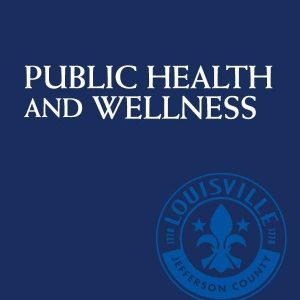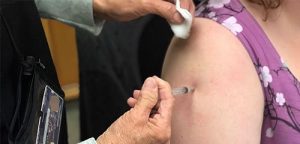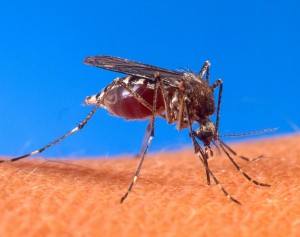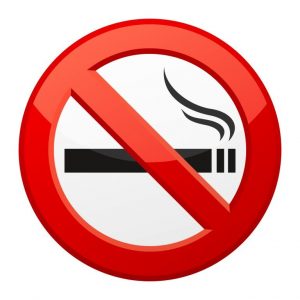The Louisville Metro Department of Public Health Wellness is working with area physicians, hospitals and government agencies to guard against and prevent the potential spread of the 2019 novel coronavirus. So far, there have been no confirmed cases or suspected cases in Louisville.
“Communicable disease monitoring, outbreak response planning, and working with community partners to respond to community health threats is something that’s core to our daily operations,” said Dr. Sarah Moyer, Chief Health Strategist and director of the Department of Public Health and Wellness. “Our team, led by our medical director, Dr. Lori Caloia, is working closely with our partners at the Kentucky Department for Public Health and the Centers for Disease Control (CDC) to stay up to date on the novel coronavirus. We’ve been sharing guidance to healthcare providers, local colleges and universities and local businesses with international operations.”
The Louisville Metro Department of Public Health and Wellness maintains detailed plans on how to respond to outbreaks of infectious diseases, such as the 2018 hepatitis A outbreak, as well as other community public health emergencies.
On Wednesday the Kentucky Department for Public Health reported that there are no confirmed or suspected 2019 novel coronavirus in the state. There are presently six confirmed cases of the 2019 novel coronavirus in the United States. All six cases are in isolation hospitals. They are in Arizona, California (2), Illinois(2) and Washington. These individuals had recently been in Wuhan, China or were close household contacts of those who had travelled to Wuhan. Yesterday the CDC reported the first case of person-to-person transmission in the United States between an Illinois woman who had travelled to Wuhan and her husband who had not.
The virus has now spread from China to 18 other countries and the World Health Organization has declared the 2019 novel coronavirus a global health emergency.
While the CDC considers this is a serious public health threat, based on current information, CDC reports that the immediate health risk from 2019 novel coronavirus to the general American public is low at this time. “Unless you have recently travelled to China or have been in close contact with someone who has, you are not at risk from the 2019 novel coronavirus,” said Dr. Moyer.
The 2019 novel coronavirus is a respiratory illness spread when an infected person coughs or sneezes, like the way that flu and other respiratory viruses spread. Like other respiratory viruses, 2019 novel coronavirus symptoms include fever, cough and difficulty breathing. If you have recently been to China and develop these symptoms, you should contact your health care provider immediately. Call ahead to alert them so measures can be taken to avoid spreading the virus at the health care facility. There are many strains of coronavirus, causing mild to severe illness. You may have been diagnosed in the past with a coronavirus. The 2019 novel coronavirus is a new unique strain.
There is currently no vaccine to prevent 2019 novel coronavirus infection. You can protect yourself by taking everyday preventive actions including:
- Wash your hands often with soap and warm water for at least 20 seconds. Use an alcohol-based hand sanitizer that contains at least 60% alcohol if soap and water are not available.
- Avoid touching your eyes, nose, and mouth with unwashed hands.
- Avoid close contact with people who are sick.
- Stay home when you are sick.
- Cover your cough or sneeze with a tissue, then throw the tissue in the trash.
- Clean and disinfect frequently touched objects and surfaces.
 The Department of Public Health and Wellness is reminding people that despite cooler weather, mosquitoes are still active and continue to pose a threat for transmitting diseases such as West Nile virus. People should continue to guard themselves by wearing insect repellant and long sleeves and pants when going outdoors, especially at dawn and dusk when mosquitoes are most active.
The Department of Public Health and Wellness is reminding people that despite cooler weather, mosquitoes are still active and continue to pose a threat for transmitting diseases such as West Nile virus. People should continue to guard themselves by wearing insect repellant and long sleeves and pants when going outdoors, especially at dawn and dusk when mosquitoes are most active.
This year there has been one death reported from West Nile in ZIP code 40211 and one other non-fatal case in ZIP code 40215. Mosquitoes have tested positive for West Nile in ZIP codes 40204, 40205, 40206, 40211, 40213, 40214 and 40215. It is also important to note that we have had no mosquitoes test positive for any diseases other than West Nile virus.
The Department of Public Health and Wellness is continuing countywide mosquito control actions, including treating catch basins, monitoring mosquito traps and testing mosquitoes for diseases, and fogging when necessary.
“Even though we can expect mosquito populations to begin to decrease as the weather gets cooler, West Nile positive mosquitoes may continue to be present throughout the entire community until the first hard frost,” said Dr. Sarah Moyer, director of the Louisville Metro Department of Public Health and Wellness. “If you go outdoors during dusk and dawn, you should wear long sleeves and pants and insect repellant to protect yourself. We advise everyone to take the appropriate precautions no matter what ZIP code you live in.”
The Department of Public Health and Wellness advises people to take the following precautions:
Avoid Mosquito Bites
- Use insect repellents when you go outdoors. Repellents containing DEET, picaridin, IR3535, and some oil of lemon eucalyptus and para-menthane-diol products provide longer-lasting protection. To optimize safety and effectiveness, repellents should be used according to the label instructions.
- Wear long sleeves, long pants and socks when outdoors. Mosquitoes may bite through thin clothing, so spraying clothes with repellent containing permethrin will give extra protection. Don’t apply repellents containing permethrin directly to skin. Do not spray repellent on the skin under your clothing.
- Take extra care during peak mosquito biting hours. Take extra care to use repellent and protective clothing at dusk and dawn or consider avoiding outdoor activities during these times.
Mosquito-Proof Your Home
- Install or repair screens on windows and doors to keep mosquitoes outside. Use your air conditioning, if you have it.
- Help reduce the number of mosquitoes around your home by emptying standing water from flowerpots, gutters, buckets, pool covers, pet water dishes, discarded tires and birdbaths on a regular basis.
Last year there were four human West Nile cases in Louisville and no deaths. In 2017 there was one non-fatal human case. In 2016 there were two human cases and one death. In 2015, there were three human cases with no deaths.
In most instances, people infected with West Nile virus either show no symptoms or relatively mild symptoms. However, less than one percent of infected people develop a serious neurologic illness such as encephalitis or meningitis. Serious illness can occur in people of any age. However, people over 60 years of age are at the greatest risk for severe disease. People with certain medical conditions, such as cancer, diabetes, hypertension, kidney disease, and people who have received organ transplants, are also at greater risk for serious illness.
The Louisville Metro Department of Public Health and Wellness has operated a mosquito control program for more than 60 years. The department does surveillance of mosquito populations with traps strategically located throughout the community, and tests mosquitos for such diseases as West Nile, La Crosse, Eastern Equine and St. Louis Encephalitis.
In the spring the department pre-treats potential mosquito breeding sites with larvicide to prevent hatch offs. In the summer it treats catch basins and performs mosquito fogging in response to West Nile virus and other mosquito-borne diseases.
For more information on mosquito control and prevention, visit https://www.cdc.gov/westnile/index.html or www.louisvilleky.gov/health. If mosquitoes are bad in your neighborhood, file a complaint by calling MetroCall 311 or 502.574.5000.

Credit: Louisville Metro Police
One year after its start as a pilot program limited to two Louisville Metro Police divisions, the Living Room program is now open to the public.
Mayor Greg Fischer joined partners from Centerstone, Louisville Metro Department of Public Health and Wellness, LMPD, Metro Corrections and Metro Council today for a special Open House and press conference to celebrate the Living Room’s one-year anniversary and newly expanded services.
The Living Room is a safe, calming space where adults in crisis can be connected with needed resources to address mental health and substance use disorder, as opposed to costly and often unnecessary stays in jail, emergency rooms or inpatient hospitalization.
The low-barrier facility, located at 708 Magazine Street, is open 24 hours a day, seven days a week.
Since its soft opening on December 10, 2017, the Living Room has served more than 1,100 guests and provided more than 8,000 hours of care to people in crisis in our community.
“Adding the Living Room to the services we have available in Louisville has been a great achievement over the past year,” said Mayor Fischer. “Helping to connect people in crisis to support and services is just one more way that Louisville is proving itself to be a compassionate city.”
The Living Room first opened as a pilot project with two Louisville Metro Police Divisions, who tested the feasibility of bringing individuals in crisis to the center instead of jail or the hospital. By March 2018, all eight LMPD divisions had begun utilizing the program.
The Living Room has been able to expand services even more in recent months thanks to renewed funding from Louisville Metro Council. Updates include:
- Renovation of the space to be more user-friendly and secure;
- Addition of medical services at the site during certain hours of the day; and
- Addition of transportation to help get clients get to and from the Living Room and other services.
Last month, the Living Room completely opened its doors to the public. Guests no longer require a referral from police, hospitals or other sources. Now, they simply need to ring the doorbell to get assistance.
“We at Centerstone couldn’t be prouder of the work that has gone into establishing this valuable community resource,” said Abby Drane, President & CEO, Centerstone Kentucky. “Since opening to the public, the Living Room as seen a 25 percent increase in guest check-ins – illustrating the need this community has for low-barrier crisis diversion services.”
Centerstone staff expect to see continued growth as they launch a public awareness initiative to get the word out about available services.
Students from the University of Louisville Criminal Justice program will continue to be involved in studying the effectiveness of the program, to help determine how many resources are being saved by diverting people away from jails and hospitals.

Photo: Louisville Metro Public Health And Wellness
The Louisville Metro Department of Public Health and Wellness is reminding residents to get immunized against hepatitis A and the flu.
“While we have seen some encouraging trends in Louisville with the number of new hepatitis A cases falling over the past six months, the hepatitis outbreak isn’t over yet,” said Dr. Sarah Moyer, director of the Metro Department of Public Health and Wellness and the city’s chief heath strategist. “In other areas of the state, new cases have grown quickly. In fact, nearly 80% of Kentucky counties have a hepatitis A outbreak. If you haven’t already done so, please get immunized against hepatitis A, especially considering all the travelling people do during the Thanksgiving holidays. Protect yourself and your family. Get immunized!”
“Also, please get a flu shot’” said Dr. Moyer. “Last year 49 people in Louisville died of the flu and its complications. So, when you’re out getting your hep A shot, get a flu shot as well.”
As the hepatitis A outbreak continues to spread throughout Kentucky and the surrounding region, new cases per day in Louisville fell for the sixth month in a row. New cases in Louisville have fallen from more than four per day in April to less than one per day in October. October’s new case per day rate of 0.58 was close to the same (0.39) as what it was in October 2017, before the outbreak was declared.
As of November 3, Kentucky had 2,545 hepatitis A cases and 17 deaths spread out over ninety-four counties. By comparison, Louisville had 634 cases (as of November 13) and five deaths. While Louisville once had the overwhelming majority of Kentucky’s hepatitis A cases, it now has less than 25% of the state’s cases.
More than 83,000 hepatitis A immunizations have been given across Louisville since the outbreak was declared, nearly 21,000 by Public Health and Wellness alone. The CDC has called Louisville’s response to the outbreak “the gold standard” for other cities to emulate.
Hepatitis A immunizations are widely available at local pharmacies and health care providers. The cost is covered by most insurance plans. People should check with their health insurance provider on where the insurer prefers that they go to get the vaccine and what, if any, cost might be associated with it.
For information on where to obtain the hepatitis A vaccine for those insured or uninsured, CLICK HERE.
 The Department of Public Health and Wellness has found West Nile infected mosquitoes in surveillance traps in three Louisville ZIP Code areas. The ZIP Codes are 40212, 40213, and 40214.
The Department of Public Health and Wellness has found West Nile infected mosquitoes in surveillance traps in three Louisville ZIP Code areas. The ZIP Codes are 40212, 40213, and 40214.
“This indicates that West Nile infected mosquitoes are now present throughout our community,” said Dr. Sarah Moyer, director of the Louisville Metro Department of Public Health and Wellness. “We advise everyone to take the appropriate precautions no matter what ZIP Code you live in. You should wear insect repellant if you go outside during dusk or dawn and should remove standing water around your home.”
The Department of Public Health and Wellness advises people to take the following precautions:
Avoid Mosquito Bites
- Use insect repellents when you go outdoors. Repellents containing DEET, picaridin, IR3535, and some oil of lemon eucalyptus and para-menthane-diol products provide longer-lasting protection. To optimize safety and effectiveness, repellents should be used according to the label instructions. More information about insect repellents can be found here at http://www.cdc.gov/westnile/faq/repellent.html.
- When weather permits, wear long sleeves, long pants and socks when outdoors. Mosquitoes may bite through thin clothing, so spraying clothes with repellent containing permethrin or another EPA-registered repellent will give extra protection. Don’t apply repellents containing permethrin directly to skin. Do not spray repellent on the skin under your clothing.
- Take extra care during peak mosquito biting hours. Take extra care to use repellent and protective clothing from dusk to dawn or consider avoiding outdoor activities during these times.
Mosquito-Proof Your Home
- Install or repair screens on windows and doors to keep mosquitoes outside. Use your air conditioning, if you have it.
- Help reduce the number of mosquitoes around your home by emptying standing water from flowerpots, gutters, buckets, pool covers, pet water dishes, discarded tires and birdbaths on a regular basis.
No human cases of West Nile have been reported in Louisville so far this year. Last year there was one non-fatal human case. In 2016 there were two human cases and one death. In 2015, there were three human cases with no deaths.
In most instances, people infected with West Nile virus either show no symptoms or relatively mild symptoms. However, less than one percent of infected people develop a serious neurologic illness such as encephalitis or meningitis. Serious illness can occur in people of any age. However, people over 60 years of age are at the greatest risk for severe disease. People with certain medical conditions, such as cancer, diabetes, hypertension, kidney disease, and people who have received organ transplants, are also at greater risk for serious illness.
The Louisville Metro Department of Public Health and Wellness has operated a mosquito control program for more than 50 years. The department does surveillance of mosquito populations with traps strategically located throughout the community, and tests mosquitos for such diseases as West Nile, Zika and St. Louis Encephalitis.
In the spring the department pre-treats potential mosquito breeding sites with larvicide to prevent hatch offs. In the summer it treats catch basins and performs mosquito fogging in response to West Nile virus and other mosquito-borne diseases.
To check if your area has been fogged or will be fogged call the mosquito hotline, 574-6641, or visit https://louisvilleky.gov. To make a request regarding mosquitoes in your neighborhood call Metro Call at 311 or 574-5000.
 The Louisville Metro Department of Public Health and Wellness and its community partners are offering free stop smoking classes using the American Lung Association’s Freedom From Smoking® (FFS) program. The 8-session program includes weekly support group meetings combined with the use of nicotine replacement products such as patches and gum. Participants receive free supplies of nicotine replacement products.
The Louisville Metro Department of Public Health and Wellness and its community partners are offering free stop smoking classes using the American Lung Association’s Freedom From Smoking® (FFS) program. The 8-session program includes weekly support group meetings combined with the use of nicotine replacement products such as patches and gum. Participants receive free supplies of nicotine replacement products.
Advance registration for Freedom From Smoking® classes is required. There are several ways to register: by phone 574 – STOP (574-7867), email StopSmoking@louisvilleky.gov or online.
Below is a list of upcoming classes.
| July 18 – August 29
Wednesdays 12:00 – 1:30 p.m. |
Family Health Centers, Portland
2215 Portland Ave. |
| July 19 – September 6
Thursdays 5:30 – 7:00 p.m. |
Downtown Free Public Library
301 York St. |
| July 24 – September 4
Tuesdays 5:30-7:00 p.m. |
Family Health Centers East, Broadway
834 E. Broadway |
| August 1 – September 19
Wednesdays 2:00 – 3:30 p.m. |
Fairdale Free Public Library
10620 W Manslick Rd. |
| August 15 – October 3
Wednesdays 3:30 – 5:00 p.m. |
Housing Authority of Louisville
1406 Frederick Ave. |
| August 20 – October 1
Mondays 5:30 – 7:00 p.m. |
UAW Local 862 Union Hall
3000 Fern Valley Rd. |
| August 22 – October 3
Wednesdays 5:30-7:00 p.m. |
UAW Local 862 Union Hall
2702 Chamberlain Ln. |

Photo: Louisville Metro Department of Public Health and Wellness
The Louisville Metro Department of Public Health and Wellness and its community partners are offering free stop smoking classes using the American Lung Association’s Freedom From Smoking® (FFS) program. The 8-session program includes weekly support group meetings combined with the use of nicotine replacement products such as patches and gum. Participants receive free supplies of nicotine replacement products.
Advance registration for Freedom From Smoking® classes is required. There are several ways to register: by phone 574 – STOP (574-7867), email StopSmoking@louisvilleky.gov or online.
Below is a list of upcoming classes that begin in May and June.
May 4 – June 15
- Thursdays, 2:30 – 4:00 p.m.
- Norton Healthcare Pat Harrison Resource Center
- 1203 Spring Street Jeffersonville, IN
May 9 – June 20
- Tuesdays, 12:00-1:00 p.m.
- Sullivan University College of Pharmacy
- 2100 Gardiner Ln., Study Rooms C/C
May 9 – June 20
- Tuesdays, 6:30 – 8:00 p.m.
- Southwest YMCA
- 2800 Fordhaven Rd.
May 16 – June 27
- Tuesdays, 2:00 -3:30 p.m.
- Norton Brownsboro Medical Building
- 4950 Norton Healthcare Boulevard., 3rd floor., Conference Room A
May 16 -June 27
- Tuesdays, 5:30 – 7:00 p.m.
- Family Health Centers East Broadway
- 834 East Broadway, 2nd floor
June 5 – July 17
- Mondays, 5:30 -7:00 p.m.
- Norton Health & Wellness Center
- 1000 DuPont Rd.
June 5 – July 17
- Mondays, 6:00 – 7:30 p.m.
- Family Health Centers Portland
- 2215 Portland Ave., 4th floor
June 7 – July 26
- Wednesdays, 1:30- 3:30 p.m.
- Shively Area Ministries
- 4415 Dixie Highway
 Weather
Weather Traffic
Traffic @LouisvilleDispatch
@LouisvilleDispatch @LouisvilleDisp
@LouisvilleDisp Subscribe
Subscribe
